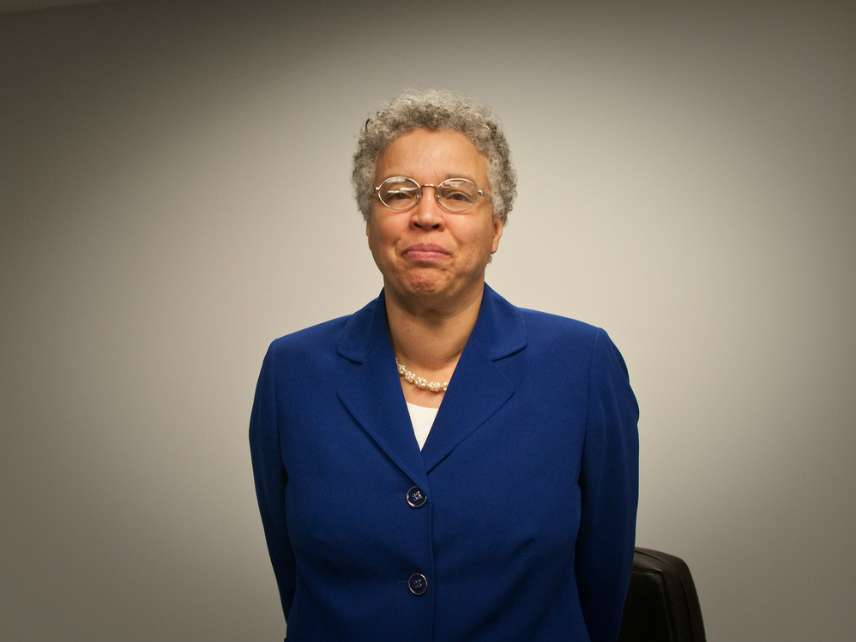Cook County Will Repeal Soda Tax
Health benefit claims abandoned in naked demand for revenue.

Do soda taxes make healthier citizens or healthier budgets?
In a desperate attempt to save Cook County, Illinois' wildly unpopular one cent per ounce soda tax—on the verge of being repealed by a vote on Wednesday—proponents are trying to make the beverage levy seem like a win for both.
"I'm standing with the children who're growing up in a world where sickening, sugary drinks are relentlessly promoted to them," Elissa Bassler, CEO of Illinois Public Health Institute and a tax proponent, told county commissioners. "The county clearly needs this revenue to serve the people I was just talking about."
Increasingly few Cook County residents are buying the double-speak. Eight commissioners voted to enact the soda tax in November 2016. Now twelve of 17 are saying that they will vote to repeal it.
One defector, Commissioner John P. Daley said that his constituents were fed up with taxes, telling the Chicago Sun-Times that "they are being taxed out of the state, out of the county. The public is saying, 'There are too many taxes and I'm tired of it.'"
In 2016, the county upped the sales tax a full percent, making the combined Cook County-City of Chicago sales tax rate 10.25 percent (the nation's highest). In 2017, Cook County residents saw up to a 10 percent bump in their property taxes.
Then there are the increasingly petty taxes that Cook County has slapped on everything from e-cigarette liquids and ticket re-selling websites to hotel rooms.
This added revenue is not going to expand services for which residents might be willing to pay. Instead it is being eaten up by Cook County's massive debt and pension burdens.
Property tax returns for Fiscal Year 2018 are estimated to increase by $4.7 million, but the amount of property tax dollars available to fund things like police officers, county health services, and other basics will decline by $5 million. The reason? County budget documents say $3.2 million in debt servicing payments, and another $5.7 million in increased funding for retirement benefits.
As an increasing slice of revenue from property and sales taxes are devoted to these legacy costs, the county has gone searching for creative ways of bilking citizens. This has involved the employment of tobacco sniffing dogs to ensure compliance with the county's cigarette levy. It's also meant leaning heavily on the soda tax.
According to budget projections for Fiscal Year 2018, Cook County's budget will increase by $76 million over FY 2017. Without the soda tax, the County would be short $51 million.
County Commission President Toni Preckwinkle has been doing everything she can to forestall a repeal, making an explicit plea to keep the tax during her October 4th budget address, and demanding that anti-tax commissioners specify which programs and services they'll cut.
Preckwinkle has at least been more honest about the tax, saying "we chose as a revenue generator a sweetened beverage tax, which had been enacted around the country, both for the revenue and for the health benefits. But first and foremost, for the revenue."
She has not, however, explained away how taxing soda and driving down sales will drive up revenue. On the eve of an almost certain repeal it doesn't much matter.
Some commissioners have resigned themselves to promises of budget cuts and offsetting savings to deal with the deficits. Commissioner John Fritchney reportedly is endorsing legalizing and taxing marijuana, although it's unclear how he can shoehorn healthier citizens into his equation.
Anything is better than shaking down taxpayers every time they want to buy a Big Gulp.
Rent Free is a weekly newsletter from Christian Britschgi on urbanism and the fight for less regulation, more housing, more property rights, and more freedom in America's cities.


Show Comments (72)